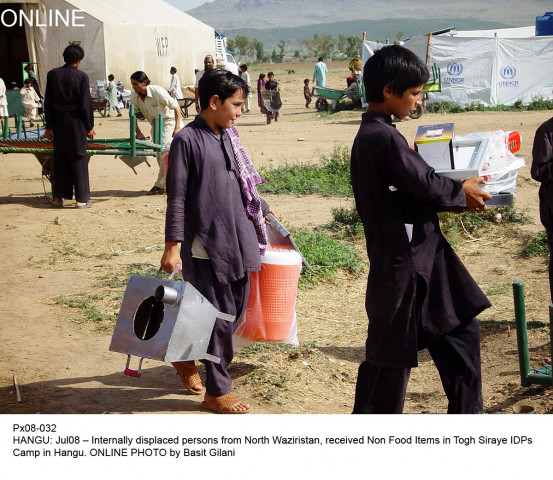A glass half-empty
The donors want to put their money in safe pairs of hands and the govt of Pakistan is not considered sufficiently safe


Given the way in which aid provision for natural disasters, once the initial crisis phase is over, has been heavily politicised on top of being ineptly managed, the reaction of the donors is unsurprising. They want to put their money in safe pairs of hands — and the government of Pakistan is not considered sufficiently safe. All spending is to be through channels other than government channels, and anything we do receive is urgently needed. Rehabilitating the North Waziristan IDPs is estimated to cost $1.1 billion and the 2014 flood victims need $900 million to help them reclaim their lives, yet money committed by the Asian Development Bank (ADB) to support the victims of the 2010-12 floods remains unspent. There is a yawning competency gap between donor contributions and actual need, which points to an endemic competency deficit in our bureaucracy. The government agencies and ministries that ought to be picking up the aid-and-relief ball often miss the catch. They are often corrupt and untrustworthy and have driven the donors to seek other ways to get aid to the neediest. As you sow, so shall you reap.
Finance Minister Ishaq Dar, who chaired the meeting, said that “Pakistan expected the international community to extend a helping hand in this hour of need” — and he must have been inwardly disappointed at the response. Recycled old money was not what he was looking for. The international community has stepped up to the plate many times over the years, but there is an increasing a sense of donor fatigue when it comes to the perennial crisis that is Pakistan.
International donors are placing more stringent monitoring protocols on aid monies to ensure that the taxpayers in the countries that fund the foreign aid are getting value for money; and that the money really is going where it is supposed to and doing what was expected of it. Few on the receiving end of aid and support will realise that it is the tax payments of people far away that is providing their support, and some donor nations have in recent times taken Pakistan to task for its failure to reform its own tax structures to increase government cash flows — and perhaps, reduce the need for international aid in times of crisis.
Operation Zarb-e-Azb was always going to spawn a humanitarian crisis, and that appears to have been to a degree anticipated and planned for. The fallout from the much-need operation is an entirely man-made disaster unlike floods, droughts and earthquakes. Although there are government agencies specifically tasked to cope with and manage disasters, they have consistently fallen short in terms of performance, particularly in respect of corruption and the misuse of aid funds. The ADB country director proposed the establishment of a “Pakistan fund for disaster management”, which we warmly support, but the ways in which donor monies are managed has to change — and if it does not, the glass is never going to be full enough.
Published in The Express Tribune, November 17th, 2014.
Like Opinion & Editorial on Facebook, follow @ETOpEd on Twitter to receive all updates on all our daily pieces.















COMMENTS
Comments are moderated and generally will be posted if they are on-topic and not abusive.
For more information, please see our Comments FAQ